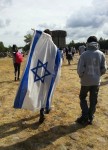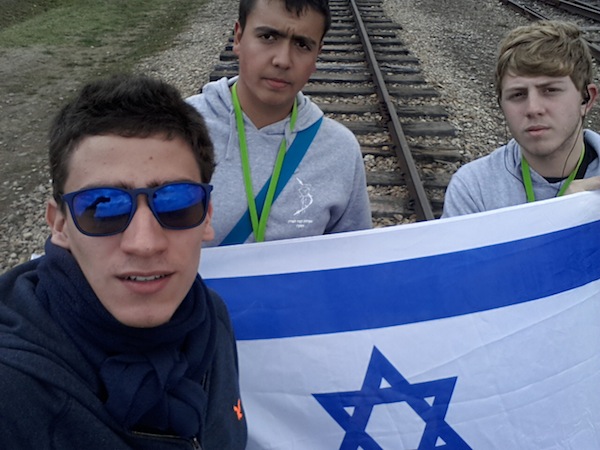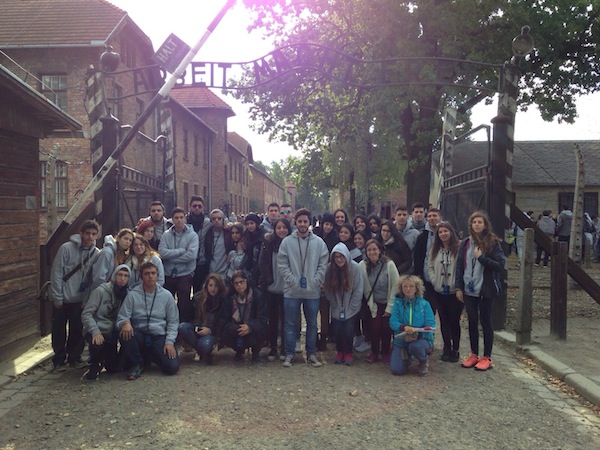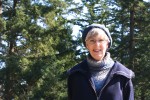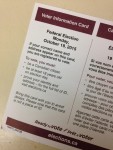Sirens always make me pause. I fall silent and count one off, praying that there won’t be another. Because two sirens, as we used to say, are not women in labor.
Distant memories from the Intifada segue into those of summer last. Somehow, the rise of conflict in Jerusalem always comes along with the rising temperatures. But after the emergency meetings, the touring politicians, the dramatic headlines, there comes the first rain, and everything calms down. Then the countdown begins for next summer.
Some, though, aren’t content with just counting the days. Jeremy made aliya from D.C. six years ago. A reserve paratrooper officer, he rides his bike to work, halfway across town, each time reassuring his mother, thousands of miles away, that he wasn’t anywhere near the most recent attack. Last month, he joined a crowd of 5,000 to watch Matisyahu, the famous Jewish-American rapper, perform beneath the Old City walls. “Jerusalem If I Forget You gets a whole new meaning these days,” he tweeted, referring to the ancient prayer borrowed by Matisyahu for one of his songs.
Michal is a mother of four. At night, after putting her own children to bed, she has been going downtown, where she volunteers for a group seeking out dialogue with angst-filled youth bent on revenge. To her ever-concerned sister, she vows never to leave Jerusalem, with its crisp, cool air and still-low crime rates. It’s her husband who drops off the kids at school the following morning, where they are taught about the complexities of living in a mixed city, where you have to defend yourself with one hand and reach out to your would-be enemies with the other.
Another person is Ibrahim, a Hebrew University law student, and also a resident of Ras el-Amud, a Palestinian suburb shaken by recent events. Intimidating glares by Hamas supporters notwithstanding, he goes online every day, trying to convince people to stop the cycle of violence. Despite the long-standing advice of friends to relocate to Ramallah or the United States, he clings on to his naïve faith that there’s still hope in this conflict. Meanwhile, he alerts the authorities to suspicious happenings and, a few weeks back, confiscated a knife off of a 15-year-old brainwashed neighbor kid.
Then there’s Batia. She is an ultra-Orthodox woman. Every day she walks to work at City Hall. Despite having recently bought a canister of tear gas as a precaution, she prefers to put her faith in G-d and in the ubiquitous policemen. Just before Shabbat, she often goes up to them, to deliver fish, meat and chicken and to make their shift a little more pleasant.
Jerusalem keeps going, not through pompous statements, but through the hard work and devotion of its people, some elected officials, some social entrepreneurs and some ordinary citizens, united by relentless optimism and a profound love for their city. When things started getting really bad, I put out a call for an emergency meeting of Jerusalem civil society organizations. Within three hours, representatives from 33 organizations sat around a conference table at City Hall. It came as no surprise; even during “normal” times, the amount of people willing to sign up for civilian “reserve duty” is astounding.
There are teenagers handing out Israeli flags. Elderly people handing out small gifts to security personnel. Psychologists supporting youth in distress, activists helping out local businesses, and a string of independent online campaigns. These ordinary citizens allow the city to keep on living its life: thousands of students going back to school, the basketball team fighting to retain its championship title, and Buzz Aldrin, the second man on the moon, joining 2,000 people at the International Astronautical Congress last month.
This energy, this drive to take responsibility and think out of the box, are precisely what is needed to resolve the complexity of current events. We have to crack down on violence, while empowering moderate leaders; fight incitement on both sides and defend the right of every man and woman for freedom of worship; and make sure East and West Jerusalem get their share in infrastructure investments.
It’s time for this fresh perspective to rise from the bottom up. We are tired of instant solutions, quickly denounced by this side or the other of the political map. We are tired of those who take turns making political gains out of our hardship. Jerusalem is a different place, and requires a different point of view. The one we, young people of Jerusalem, discovered 10 years ago, when everyone else said the city was lost, and we formed Wake Up Jerusalem.
From this point of view, there is a lot of good to see. And even more to do.
Hanan Rubin is a Jerusalem city councilor and a co-founder of the solution-oriented political movement Wake Up Jerusalem, which focuses on quality of life issues for all Jerusalem residents.

